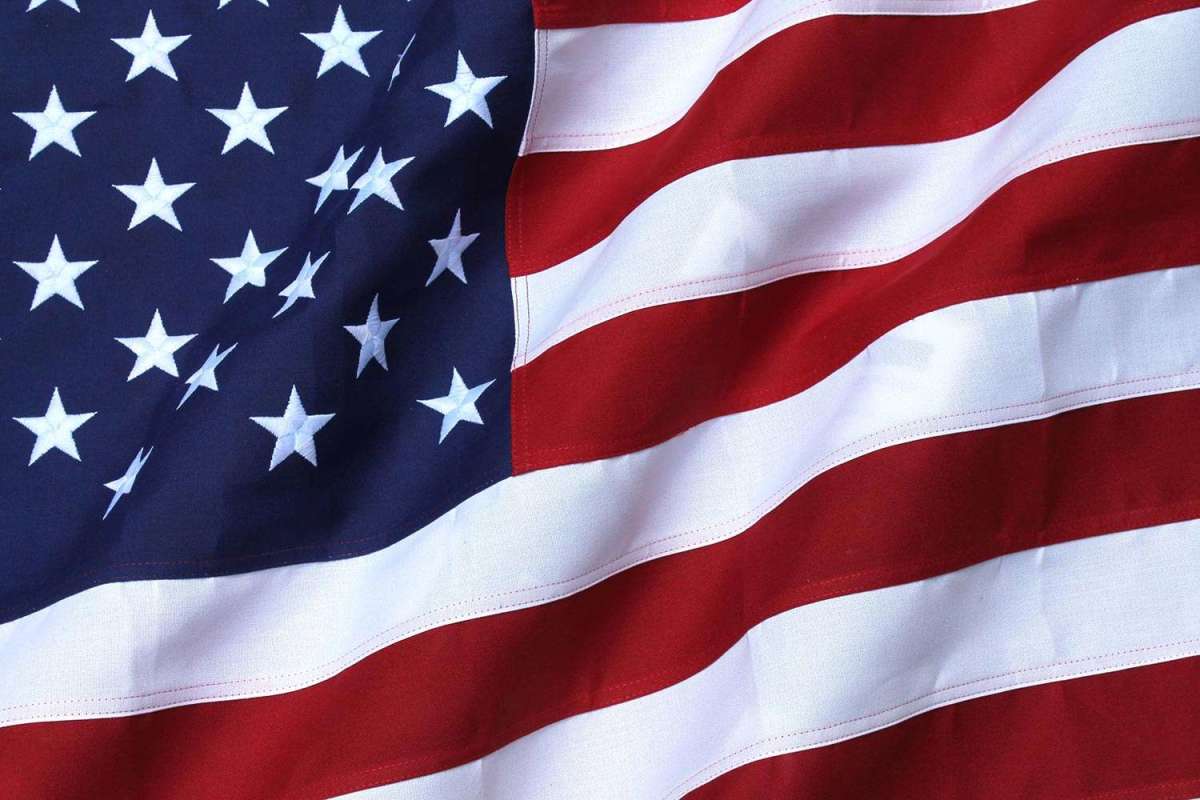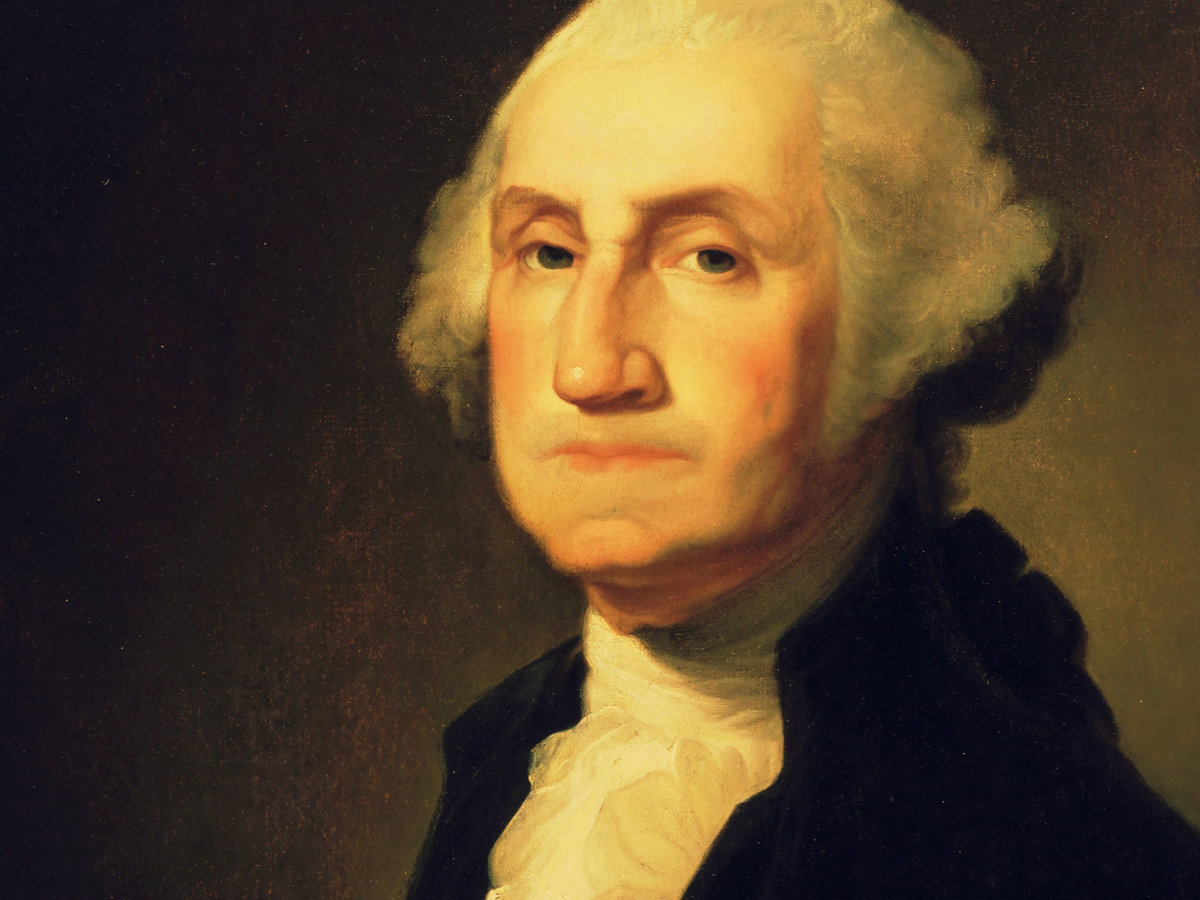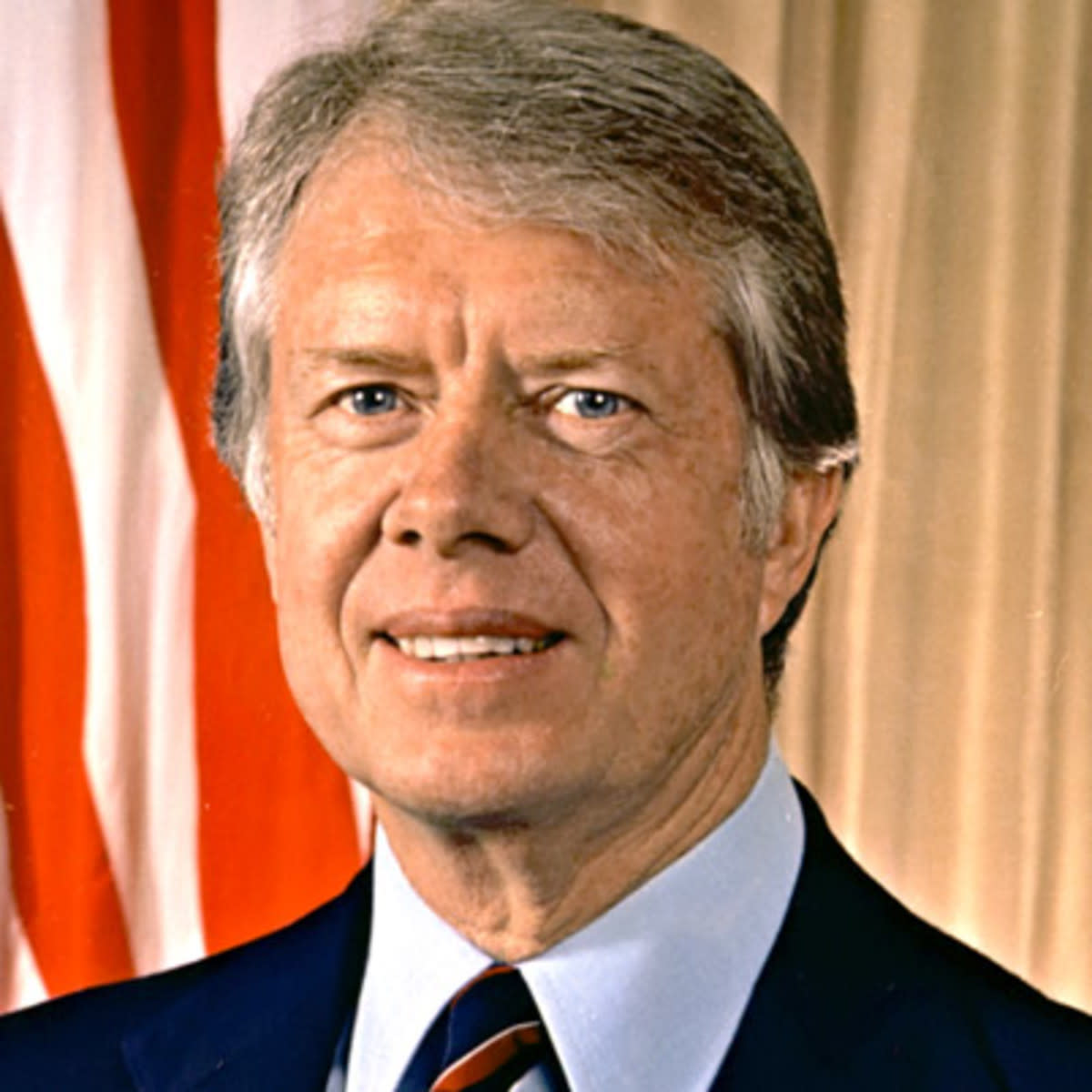What Happened to American Exceptionalism?
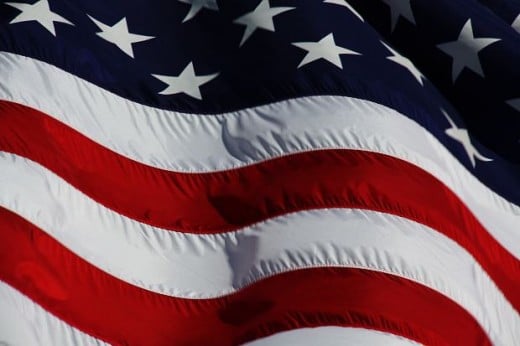
The Special Status of the United States
Freedom and democracy are the bedrock upon which American exceptionalism is anchored, but these are by no means unique to the United States. So, it's questionable whether this unique status ever existed and, if it did, what is its condition today?
The Origin of American Exceptionalism
Puritan John Winthrop was a leading figure in the creation of the New England colonies. In 1630 he wrote A Model of Christian Charity and predicted the new nation “shall be as a city upon a hill. The eyes of all people are upon us.”
Some say this was the first iteration of the notion that there was something special about what was to become the United States.
Later, the leaders of the emerging country were influenced by the European Enlightenment. Professor Donald E. Pease (oxfordbibliographies.com) writes that “The founders imagined the United States as an unprecedentedly free, new nation based on founding documents—the Declaration of Independence and the Constitution—that announced its unique destiny to become the champion of the universal rights of all humankind.”
In practical terms, Dr. Pease lists some of the distinctive elements that spring from these ideals:
“The absence of feudal hierarchies, class conflicts, a socialist labor party, trade unionism, and divisive ideological passions, and the presence of a predominant middle class, tolerance for diversity, upward mobility, hospitality toward immigrants, a shared constitutional faith, and liberal individualism.”
So, what went wrong?
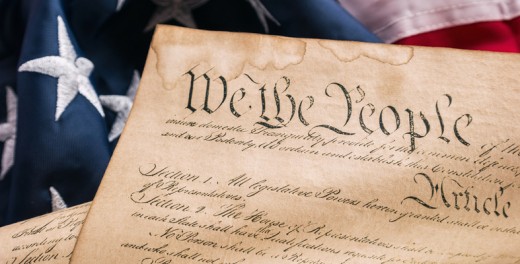
Was it all a Myth?
Such noble sentiments were enshrined in the opening sentence of the Declaration of Independence:
“We hold these Truths to be self-evident, that all Men are created equal, that they are endowed by their Creator with certain unalienable Rights, that among these are Life, Liberty, and the Pursuit of Happiness.”
But, were these ideals ever upheld?
- The U.S. government authorized “over 1,500 wars, attacks and raids on Indians, the most of any country in the world against its Indigenous people. By the close of the Indian Wars in the late 19th century, fewer than 238,000 Indigenous people remained, a sharp decline from the estimated 5 million to 15 million living in North America when Columbus arrived in 1492” (history.com).
- “By 1860, the final census taken before the American Civil War, there were four million slaves in the South, compared with less than 500,000 free Black Americans in all of the U.S” (Statista.com)
- In 1897, the peak of the so-called Gilded Age in America, “The richest 4,000 families in the U.S. (representing less than 1% of the population) had about as much wealth as [the] other 11.6 million families all together” (Time Magazine).
Eventually, the right to vote was extended to all adults and politicians began a halting approach to adhering to the principles outlined by the founders. Latterly, there have been massive setbacks.
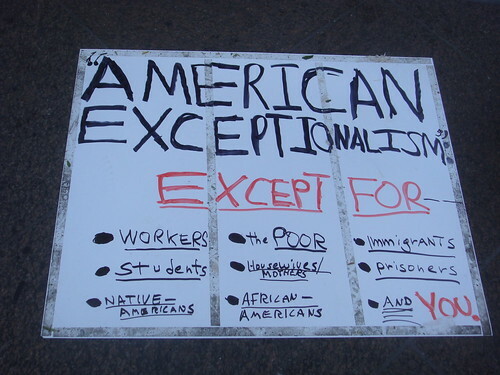
Today's Exceptionalism
Every U.S. politician who ever gave a speech wrapped themselves in the creed of American exceptionalism. (They could hardly do otherwise). But, their words are usually dripping with insincerity and none more so than Donald Trump. So, let's check on how the pledge for a dignified moral code laid out 250 years ago is doing.
Democracy. No Western democracy would elect a convicted felon, adjudicated rapist, habitual liar, and scam artist to be its leader. U.S. voters have done it—twice.
No other Western democracy would permit the redrawing of electoral boundaries to give one party an unfair advantage over another.
No other Western democracy would allow one person (Elon Musk) to spend $250 million to seek to elect his chosen candidate as president (Donald Trump).
The Economist Intelligence Unit describes the United States as a “Flawed democracy” with 27 nations listed as more democratic than it is.

Freedom. In 1786 Thomas Jefferson wrote that “Our liberty depends on the freedom of the press, and that cannot be limited without being lost.”
The concept of freedom of thought and expression was further enshrined in the First Amendment to the U.S. Constitution. However, the notion has met its match in Donald Trump and his use of libel chill; he sues any news outlet that expresses a view he does not like.
As of this writing he has sued The Wall Street Journal, CNN, ABC News, CBS News, The Des Moines Register, The Hollywood Reporter, The New York Daily News, CNBC, and many more.
The cost of defending these lawsuits, win or lose, can be crippling so many media outlets have decided to not publish unflattering news about Trump. Voters are thereby denied access to information about Trump's activities.
Immigration. Emma Lazarus's poem is inscribed on the Statue of Liberty. In part, it says:
“Give me your tired, your poor,
Your huddled masses yearning to breathe free,
The wretched refuse of your teeming shore.
Send these, the homeless, tempest-tossed to me,
I lift my lamp beside the golden door!”
But those sentiments no longer hold. Immigrants, we are told, are “vermin,” that are “poisoning the blood of our country.” Even pets are not safe because “They're eating the dogs, the people that came in, they're eating the cats.” The solution is to get rid of immigrants.
So, Immigration and Customs Enforcement (ICE) agents have been tasked with ridding the country of migrants. Unbadged and masked agents had, during the first half of 2025, taken into custody more than 100,000 people, very few of them criminals and many of them legitimate immigrants. This doesn't happen in a society that holds “freedom for all” as sacrosanct.
Equality. The first item in the Declaration of Independence affirms that “all Men are created equal,” and subsequent rulings declare that this includes women.
We've already seen how that worked out in the Gilded Age; 11.6 million families got roughly equal shares of half of the economy while 4,000 families split the other half.
The situation has not improved much; the top one percent of the population now only share 30.8% of total U.S. net worth.
Meanwhile, the Pew Research Center tells us that between 1971 and 2023, the share of U.S. families in the middle income bracket dropped from 61 percent to 51 percent while the low income group rose from 27 percent to 30 percent. Upper income earners rose from 11 percent to 19 percent in the same period. The gap in equality is growing wider.

The Decline of Exceptionalism
On the last day of the Constitution Convention in 1787, the architects of the United States emerged from Independence Hall in Philadelphia.
A leading member of the city's upper class, Elizabeth Willing Powel, approached Benjamin Franklin and asked, “Well, Doctor, what have we got, a republic or a monarchy?” Franklin replied presciently, “A republic, if you can keep it.”
The old man knew that the heroic virtues the founders embraced were fragile and a strong case can be made that American exceptionalism was still born.
However, if there ever was something exceptional about the United States it has been in decline for some time and Donald Trump is delivering the coup de grace.
Here is Anthony Barnett, the founding Editor-in-Chief of openDemocracy, to provide the summing up:
“Trumpism recognized the shame of the country’s military defeat in Iraq and its economic humbling by China. It rejected exceptionalism’s global mission, while asserting a nativist 'America First.'
“The consequence was to internalize the aggression that had marked the US since it launched the 'War on Terror,' its grotesquely mistaken response to 9/11. In effect, Trump brought the war home. In doing so, he bid to make the racist, exclusionary side of American society, which had co-existed with its liberal side since its foundation, dominant.”
Trump has purged the military, judiciary, and government departments and agencies of all but his most ardent supporters. It simply remains for the crown to be lowered onto his head and for reflection upon the warning of Ben Franklin.
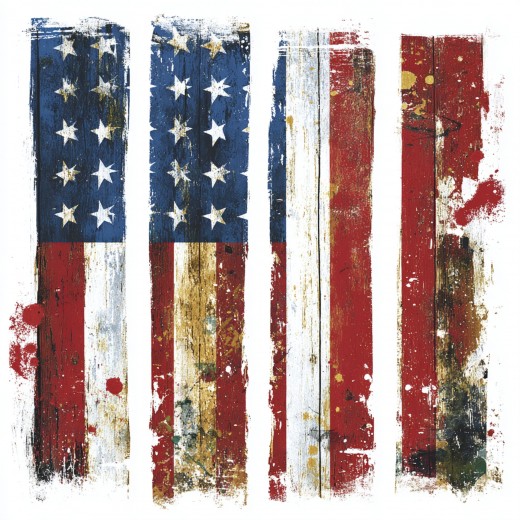
Bonus Factoids
- America is exceptional in its rampant crime. The country has an incarceration rate, 541 per 100,000, that is much higher than any other Western democracy. Compare with Canada—90 per 100,000, the United Kingdom—139 per 100,000, and Australia—162 per 100,000.
- At 420, the United States has far and away the most Nobel laureates of any nation, yet it has a population of which 41 percent believe that dinosaurs and humans co-existed (yougov.com).
- According to a Gallup analysis, 54 percent of Americans between the ages of 16 and 74 read at a level below grade six. This means that more than 130 million Americans will have difficulty reading and comprehending this article, which is written at a college undergraduate level.
Your voice
The United States has always been, and remains today an exceptional nation.
Sources
“American Exceptionalism.” Donald E. Pease, oxfordbibliographies.com, June 27, 2018.
“When Native Americans Were Slaughtered in the Name of ‘Civilization.’ ” Donald L. Fixico, history.com, May 28, 2025.
“Black and Slave Population of the United States from 1790 to 1880.” Aaron O'Neill, statista.com, August 1, 2025.
“How American Inequality in the Gilded Age Compares to Today.” Lily Rothman, Time Magazine, February 5, 2018.
“Money’s Control Over Politics Has Never Been Greater.” Michael Waldman, Brennan Center for Justice, January 14, 2025.
“EIU’s 2024 Democracy Index: Trend of Global Democratic Decline and Strengthening Authoritarianism Continues Through 2024.” Economist Intelligence Unit, February 27, 2025.
“The Chilling Effect: Trump’s Legal Challenge on Free Speech and Journalistic Independence.” Aissatou Diallo, Columbia Undergraduate Law Review, June 2, 2025.
“Has ICE Been More Active Under Trump?” Katharina Buchholz, statista.com, June 10, 2025.
“Visualized: The 1%’s Share of U.S. Wealth Over Time (1989-2024).” Govind Bhutada, visualcapitalist.com, February 8, 2025.
“The State of the American Middle Class.” Rakesh Kochhar, Pew Research Center, May 31, 2024.
“The Decline and Fall of American Exceptionalism.” Anthony Barnett, publicseminar.org, October 13, 2021.
This content is accurate and true to the best of the author’s knowledge and is not meant to substitute for formal and individualized advice from a qualified professional.
© 2025 Rupert Taylor


